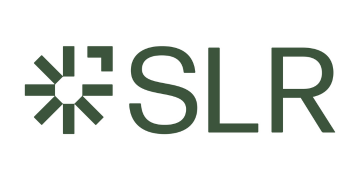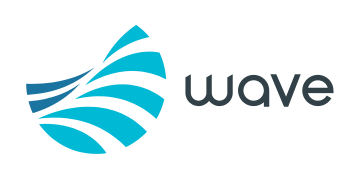
The importance of male allyship
It’s rewarding to win awards and recognition for promoting greater diversity, but they...read more
Our panel of experts reviewed the impact of Covid on diversity and inclusion and offered advice on best practice.

Request access to the full Q&A
Diversity and inclusion was the topic for the expert Q&A session at our Top Employer Awards this week.
We assembled a group of seven experts to discuss how employers can embed diversity and inclusion (D&I) in their organisation. Many companies are taking an increased interest in D&I as a result of the coronavirus crisis as it’s been shown to improve a firm’s productivity and flexibility.
Employers who really want to embed diversity must first do a sort of internal audit according to one panelist. Diana Parkes said it’s important to analyse who are the dominant voices in your organisation and whether there is a ‘hero team’ that dominates. Getting them on board can be a powerful way to change company culture.
Parkes, founder of the Women’s Sat Nav to Success Ltd, said her research showed that diversity and inclusion was about people being heard and valued. She introduced the idea of ‘hero’ departments – typically sales, or finance – who dominate planning and strategy. “They are the in-group. They can prevent the best thinking because the right people for the right outcomes are not included,” she said. “Organisations need the best information to make the best decisions.”
The discussion was chaired by Jennifer Liston-Smith, Head of Thought Leadership at Bright Horizons.
Rob Hopkin, co-founder of Axis, said inclusion must be part of everyday business practices such as meetings. Hopkin said that to embed diversity people need to feel that their voices were heard when it came to the everyday running of an organisation and decision-making processes. That is the aim of Axis’ work. Hopkin said meetings tend to be dominated by the same voices, with many workers feeling excluded, including remote workers. “So many meetings are not great. Using technology, we help to ensure everyone has their voices heard and has the opportunity to put forward their perspective on solving problems,” he said.
Consultant Dr Suzanne Doyle-Morris, founder and CEO of Inclusiq, said the pandemic had positive and negative effects. On the positive side was the change in attitudes towards remote working with the proof that it works. But on the negative side the pandemic had significantly set back gender and race equality. Nevertheless, there is an appetite for D&I which must be taken forwards, she said.
Diana Parkes also called on employers, having fast adapted to short term challenges, to be bold and commit to slower burn, longer term strategies. This could be through creating safe spaces for parents to say what they want and to challenge gender stereotypes, and valuing part-time workers more by giving them access to sponsorship, training and quality projects. “We need to educate people to understand that when someone is a parent their brain is not parked,” she said. She cited survey results showing a big gap between how much women contribute to an organisation and how much they feel valued compared to their male counterparts.
Salma Shah, founder and creator of Mastering Your Power Coach Training, spoke about how unconscious bias training had been regarded as “a magic pill” in the early days. She welcomed moves to look at other approaches to D&I. She didn’t think unconscious bias should be discarded entirely, but she said it was not, on its own, a magic solution.
Shah also said she wanted to see the momentum from the Black Lives Matter movement sustained. And she called for more systemic approaches to D&I, embracing broader issues of belonging, psychological safety and inclusion.
Andrew Armes, UK Head of Talent Acquisition at Roche, spoke about how Roche is keen to raise awareness of the strengths of neurodiverse workers. He said we need to recognise that everyone is different, has overcome different challenges and brings diverse strengths to an organisation rather than create separation between workers. “We should focus less on needs and more on the strengths people bring and the wider inclusion that brings,” he said.
IBM won our Top Employer Award for Diversity and Inclusion. Deborah Richards is Diversity & Inclusion Leader for the UK at IBM. She, spoke about how working with neurodiverse colleagues made her think about how people solve problems in different ways. That’s important for getting better results and building better products. She noted that some colleagues on the autistic spectrum found remote working less stressful. But said she was working with suppliers on how to ensure workplace tools took neurodiversity into account.
Jennifer Liston-Smith also spoke of how processes such as recruitment assessments might need to be adapted to ensure everyone’s strengths could be properly gauged.
The Q & A followed the Top Employer Awards ceremony which was introduced by Gillian Nissim and Mandy Garner from the newly launched WM People [which brings together workingmums.co.uk, workingdads.co.uk and workingwise.co.uk]. Nissim said it had been a very challenging year and that it was important to acknowledge all the many ways in which employers had adapted to those challenges – including WM People.
She spoke of the way the company’s roundtables had gone online and how we organised Facebook Live sessions for parents on their rights and on mental health, We ran multiple surveys to keep up to date with what parents needed. Across the group we provided advice and information to hundreds of parents since the pandemic began.
Garner gave a digest of all the surveys, including the latest one for workingmums.co.uk on the current lockdown.
Nissim said: “The next year will be challenging in different ways as we seek to rebuild and to ensure that no-one gets left behind. We will need to harness all the lessons learned from the last months and use them to embed Diversity & Inclusion and drive innovation.”
The awards ceremony was followed by a panel discussion among the Awards judges. The judging panel was Andy Lake, editor of Flexibility.co.uk; Jennifer Liston-Smith; Dave Dunbar, Head of Digital Workspace at the Department for Work and Pensions; and Clare Kelliher, Professor of Work and Organisation at Cranfield School of Management.
Asked what had stood out for her from this year’s entries, Jennifer Liston-Smith said the huge sustained effort by employers, champions, mental health first aiders and line managers to keep organisations going despite the pandemic. “The sheer effort and resilience was outstanding across the board,” she said.
For Dave Dunbar the amount of employee engagement stood out. Engagement scores had gone up in many cases which showed how much effort had been put in in difficult times. Senior leadership involvement was also key.
The amount of innovation impressed Professor Kelliher. She said this showed what organisations could do if they were forced to rethink things. Many had learned a lot in the process of adapting to fast-changing circumstances. But simultaneously many retained a focus on longer term Diversity & Inclusion work.
Andy Lake also praised organisations’ adaptability, the acceleration of smart working and the way technology had been harnessed for team working. The entries were “a showcase for business resilience under difficult circumstances,” he said.
The judges were also asked about some of the main challenges thrown up by Covid-19. For Dave Dunbar, this included how employers deal with the tension between employee demand for more flexible working and the difficulties of pandemic working. For instance, the equation of homeworking with flexible working. He expressed concert that negative perceptions of homeworking isolation during the pandemic may provoke a rush back to “the straitjacket” of the office.
Andy Lake questioned the term hybrid working. He felt it lacked a transformative element. He suggested employers just shift some of their meetings online rather than modernising their working practices wholesale and designing in smart working.
Professor Kelliher said the pandemic had raised huge questions about gender at work and how remote working and furlough have affected or will affect men and women’s career progression and pay. She said employers needed to think about the unintended consequences of who they furlough. They must treat employees fairly based on their overall track record not just this year’s events as we emerge from the pandemic.
Jennifer Liston-Smith added that it was important to acknowledge how challenging and painful the pandemic had been for employers. She also said the pandemic had shown that many dads wanted to be more hands on at home. Bright Horizons’ Modern Families Index showed 80% wanted to continue to be more involved in their children’s lives after Covid. That mirrors the findings of the most recent workingdads.co.uk survey. Covid had made people more upfront about their caring responsibilities, she said. Although she added that it was wrong to equate crisis working during Covid with remote working. “Remote working does not mean the chaos we have seen,” she said.
Request access to the full Q&A

Rewarding our fantastic colleagues Our growing business wouldn’t be as successful as it is without the hard work and commitment of our fantastic... read more

Diversity, Equity, and Inclusion at SLR At SLR, we are a people-focused business and our One Team culture is at the heart of all that we do; helping... read more

